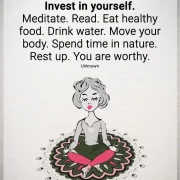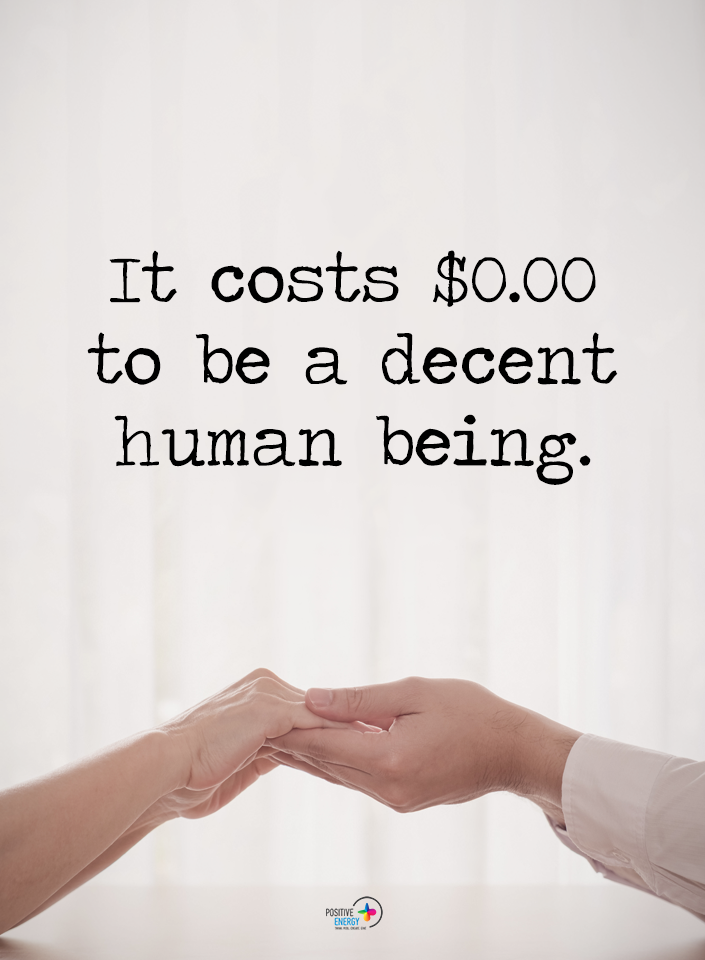Learn why sometimes partners stay together, even when the embers cool down.
Relationships are complex, and the reasons people stay in unloving partnerships are multifaceted. It’s easy to look from the outside and wonder why someone would remain in a relationship that seems devoid of love and affection. However, the intricacies of human emotions, dependencies, and societal pressures often weave a complicated web that isn’t easy to unravel. This article delves into the specific, detailed reasons why some individuals choose to stay with an unloving partner, exploring the psychological, financial, and social factors that play a significant role in these decisions.
1 – Emotional Dependency May Mean Staying With an Unloving Partner
Emotional dependency is a powerful force in many relationships. It occurs when one partner relies heavily on the other for emotional support, validation, or self-worth. This type of dependency can make leaving an unloving partner incredibly difficult. You might find yourself clinging to the emotional crumbs your partner occasionally throws your way, convincing yourself that this sporadic attention is better than nothing.
When you become emotionally dependent, your self-esteem often takes a hit. You might start believing that you are unworthy of love and that no one else would ever want you. This fear of being alone can be paralyzing, making leaving your partner seem insurmountable. The psychological impact of emotional dependency is profound, often leading to a vicious cycle where the dependent partner continuously seeks validation from the very person who withholds it.

Example: Lorenzo and Maria have been together for eight years, and their relationship has grown increasingly distant. Despite Maria’s frequent emotional neglect and dismissiveness, Lorenzo cannot leave. He relies heavily on her for validation and a sense of self-worth, constantly seeking her approval even when it’s seldom given. Maria’s sporadic displays of affection keep Lorenzo clinging to the relationship, hoping for more consistent love. His fear of being alone and the deep-seated belief that he is unworthy of a better relationship trap him in a cycle of emotional dependency, unable to imagine life without her despite the ongoing pain.
2 – Low Self-Esteem Might Cause Someone to Stay With an Unloving Partner
Low self-esteem is a common reason people stay in unloving relationships. When you don’t value yourself, it’s easy to believe that you don’t deserve better than what you currently have. You might rationalize your partner’s behavior, telling yourself their lack of affection is your fault. This mindset can trap you in an unending cycle of self-blame and acceptance of poor treatment.
An unloving partner can perpetuate low self-esteem by consistently undermining your confidence and self-worth. They might use subtle forms of emotional manipulation, such as gaslighting, to make you doubt your perceptions and feelings. Over time, this erodes your self-esteem, making it increasingly difficult to muster the strength to leave. The cycle of low self-esteem and staying in an unloving relationship becomes self-perpetuating, each feeding into the other.
Example: Robin and Taylor have been married for five years, but Robin’s low self-esteem keeps them tethered to the relationship despite Taylor’s continual disregard for their feelings. Taylor often makes belittling comments about Robin’s appearance and career, which erodes Robin’s confidence over time. Robin internalizes these criticisms, believing they aren’t worthy of love or respect. This low self-esteem convinces Robin that leaving Taylor is not an option because they fear they will never find anyone better. The constant self-doubt and lack of self-worth keep Robin in the unloving marriage, accepting Taylor’s mistreatment as something they deserve.
3 – Financial Dependence May Keep Couples Together
Financial dependence is another significant barrier to leaving an unloving partner. In many relationships, one partner may control the finances, leaving the other without the resources or financial knowledge to support themselves independently. If you find yourself in this situation, the fear of financial instability can be overwhelming.
The prospect of losing your home, struggling to pay bills, or being unable to provide for your children can make leaving seem impossible. Even if you are employed, the disparity in income between you and your partner might be substantial enough to create a financial barrier. The economic reality of starting over on your own can be daunting, especially if you lack a strong support network to help you through the transition.
Example: Annie and Stephen have been married for ten years, and throughout their relationship, Annie has been financially dependent on Stephen. Annie left her job to care for their children, and Stephen has always managed the family finances. As Stephen’s affection and support dwindled, Annie was trapped in the marriage due to her lack of financial independence.
The prospect of leaving Stephen seems impossible to Annie, as she worries about affording a place to live, covering everyday expenses, and providing for their children independently. This financial dependence creates a significant barrier, making Annie feel stuck in an unloving relationship with no feasible way to escape.
4 – Fear of Change and Uncertainty
Humans are creatures of habit, and the fear of change is a powerful force that can keep you stuck with an unloving partner. The comfort of familiarity, even when not ideal, often outweighs the fear of the unknown. You might rationalize that staying with your partner, despite lacking love, is better than venturing into an uncertain future.
This fear of change is closely tied to the psychological concept of the “status quo bias,” which refers to the preference for the current state of affairs. The unknown can be scary. The prospect of starting over can bring up fears of loneliness, failure, and judgment. These fears can create a mental barrier that keeps you in a stagnant relationship, even when it’s clear that leaving would be in your best interest.
Example: Jovan and Nicole have been together for seven years. Despite the growing emotional distance between them, Jovan is terrified of leaving. He has always been resistant to change. In fact, he takes comfort in the familiar routines of their life together. The thought of starting over alone fills him with anxiety and dread. Jovan worries about the uncertainties of a single life. He worries about finding a new place to live, navigating the dating scene, and potentially facing loneliness. This fear of the unknown keeps him anchored in an unloving relationship. Jovan chooses the comfort of the status quo over the daunting prospect of change.
5 – Children and Family Dynamics
Children are often a primary reason people stay in unloving relationships. As a parent, you might believe that maintaining a stable home environment is crucial for your children’s well-being. The fear of disrupting their lives and the potential emotional impact of a separation or divorce can be significant deterrents to leaving.
Family dynamics and societal expectations can also influence your decision to stay. You might feel pressure from extended family members to keep the family unit intact, regardless of the lack of love between you and your partner. This pressure can be extreme in cultures or communities that stigmatize divorce. The desire to protect your children from the pain of a broken home can lead you to sacrifice your happiness and well-being.
Example: Rick and Reba have been married for fifteen years and have three children together. Despite their lack of love and growing resentment, they stay together for the sake of their kids. Rick believes that a stable home environment is crucial for their children’s well-being, fearing that a divorce would disrupt their lives and cause emotional harm. Additionally, both Rick and Reba face pressure from their extended families to keep the family together. This belief in providing a united front for their children and adhering to family expectations keeps them in an unloving and tense marriage.
6 – Societal and Cultural Pressures May Make Some Feel Obligated to Their Unloving Partner
Societal and cultural expectations around relationships and marriage can influence your choice to stay with an unloving partner. In many societies, there is a strong emphasis on the sanctity of marriage and the idea that staying together is a moral obligation, regardless of the quality of the relationship. This can create a sense of duty or guilt about leaving, even when it’s clear that the relationship is unfulfilling.
The stigma of divorce can be another significant barrier. You might fear being judged by friends, family, and your community if you decide to leave your partner. This fear of judgment can be extreme if you come from a background where divorce is viewed negatively or as a failure. The pressure to conform to societal norms and avoid the label of a “divorced person” can keep you trapped in an unloving relationship.
Example: Jonathan and Amy have been married for nine years, and despite the absence of love, they remain together due to societal and cultural pressures. In their religious tradition, marriage is seen as a lifelong commitment, and divorce carries a significant stigma.
Friends and family expect them to uphold the sanctity of their marriage, regardless of their happiness. Jonathan and Amy fear being judged and ostracized by their community if they separate. This intense pressure to conform to cultural norms and avoid the label of “divorced” individuals traps them in an unloving relationship, prioritizing societal approval over their emotional well-being.
7 – Hope for Change May Keep The Partners in the Relationship
Hope is a powerful emotion that can keep you in a relationship long past its expiration date. The belief that your partner will change or the relationship will improve can be a significant reason for staying. You might hold on to memories of happier times and convince yourself that things will eventually get better.
This hope is often fueled by intermittent reinforcement, a psychological phenomenon where sporadic positive behavior from your partner keeps you invested in the relationship. These occasional moments of affection or kindness can create a false hope that things will change for the better. You might also invest significant time and effort into the relationship, making it harder to walk away because of the sunk cost fallacy – the idea that leaving would mean all your efforts were for nothing.
Example: Tate and Jacqueline have been in a rocky relationship for six years, but Tate holds on to the hope that things will improve. Despite Jacqueline’s consistent emotional unavailability, Tate remembers the happier times and believes their love can be rekindled. He clings to Jacqueline’s occasional moments of affection and kindness, interpreting these as signs of potential change. This intermittent reinforcement keeps Tate invested in the relationship, hoping Jacqueline will return to being the loving partner she once was with enough time and effort. His belief in the possibility of change prevents him from leaving despite the ongoing pain and disappointment.
8 – Fear of Judgment May Keep Someone With an Unloving Partner
The fear of judgment from those around you can be a powerful reason for staying in an unloving relationship. You might worry about how friends, family, and acquaintances will perceive you if you decide to leave your partner. This fear can be rooted in the desire for social approval and acceptance, which are fundamental human needs.
Leaving a relationship often involves sharing your reasons with others, which can open you up to criticism or unwanted opinions. You might fear being labeled as the “bad guy” or being blamed for the relationship’s failure. The fear of judgment can be powerful if you live in a close-knit community where everyone knows each other’s business. This fear can keep you in a relationship long after it has ceased to be loving or fulfilling.
Example: Kareem and Amira have been together for ten years. Although their love has faded, they stay together out of fear of judgment. Amira worries about what their friends, family, and community would think if they were to divorce. She dreads being labeled a failure and fears the gossip and criticism that would follow. Explaining the reasons for their separation from others and facing their disapproval is overwhelming for her. This fear of judgment and the desire to maintain a respectable image in the eyes of others keep Kareem and Amira in an unloving marriage, sacrificing their happiness to avoid societal scrutiny.
Final Thoughts on Staying With an Unloving Partner
The reasons why people stay in unloving relationships are complex and multifaceted, encompassing emotional, psychological, financial, and social factors.
Understanding these reasons can provide tremendous insights into individuals’ struggles when contemplating leaving an unloving partner. Still, it is essential to approach this topic with empathy and compassion. We must all recognize that deciding to stay or leave is deeply personal and often complex. Do you find yourself in an unloving relationship? It may be helpful to seek support from your most trusted friends, family members, or a professional therapist. They can listen as you explore your options and prioritize your well-being.
Remember, you deserve to be in a relationship where you feel loved, valued, and respected. Taking the first step toward change can feel daunting. However, your happiness and mental health are worth the effort.
The post Here’s Why Some People Stay With an Unloving Partner appeared first on Power of Positivity: Positive Thinking & Attitude.







